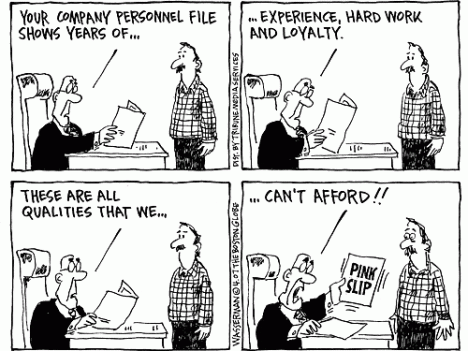It can’t get much plainer than this just how detached from reality conservatives are in their economic thinking: supply side economics is, through John McCain’s campaign, coming back despite its total failure.
[A]dvocates see broader economic benefits from lowering tax rates, which is one of the reasons the concept has reappeared as a point of contention in this year’s election campaign, in an amended form.
“What really happens is that the economy grows more vigorously when you lower tax rates,” said Kevin Hassett, an adviser to the presumptive Republican nominee, John McCain, and the director for economic policy studies at the conservative American Enterprise Institute. “It is beyond the reach of economic science to explain precisely why that happens, but it does.”
Except, of course, that it does no such thing and never has.
In the 1980s, though, during the initial era of supply-side tax cuts, per capita revenue from personal income taxes, adjusted for inflation, rose an average of just 0.7 percent annually throughout the Reagan presidency, according to the White House Office of Management and Budget.
That was far below what turned out to be an average annual increase of 6.5 percent in the eight years of the Clinton administration, when tax rates at the high end of the income ladder were raised.
Since 2001, the annual per capita revenue from income taxes fell 1 percent under President Bush even though tax collections picked up sharply starting in 2005. The budget surplus Mr. Bush inherited turned into a deficit.
The Stockman-born conviction of the Reagan years that tax revenues would magically grow after you cut taxes has never been seriously questioned by any conservative economist despite the acres of evidence over the past 3 decades proving that it’s all poppycock. We have been led into an economic dystopia by people who, like supporters of the Iraq war, have never been right about anything.
Why did we ever listen to these people? More importantly, why are we still listening to them when they’ve been so far off-base? We knew – people made jokes about it at the time – that Reagan’s contradictory formulation made no sense, that raising taxes by cutting taxes was a bonehead idea. Yet we voted for this peabrain twice, voted once for Peabrain II, got burned, and then came back to vote twice more for Peabrain the Third even though the guy wno came between P2 & P3 had pretty much proved that supply-side was applesauce.
“If you are cutting taxes without offsetting the cuts through reductions in spending, then all you are doing is increasing the debt and postponing the taxes,” said Jason Furman, director of the Hamilton Project at the Brookings Institution, and also a policy adviser to the Democratic presidential candidates.
Well, duh.
What in gawd’s name is wrong with us? Why don’t we – can’t we – learn?
It’s a puzzlement.
Filed under: Economy, Uncategorized, War on the Working Class | Tagged: AEI, David Stockman, John McCain, Ronald Reagan, supply-side economics | 4 Comments »



